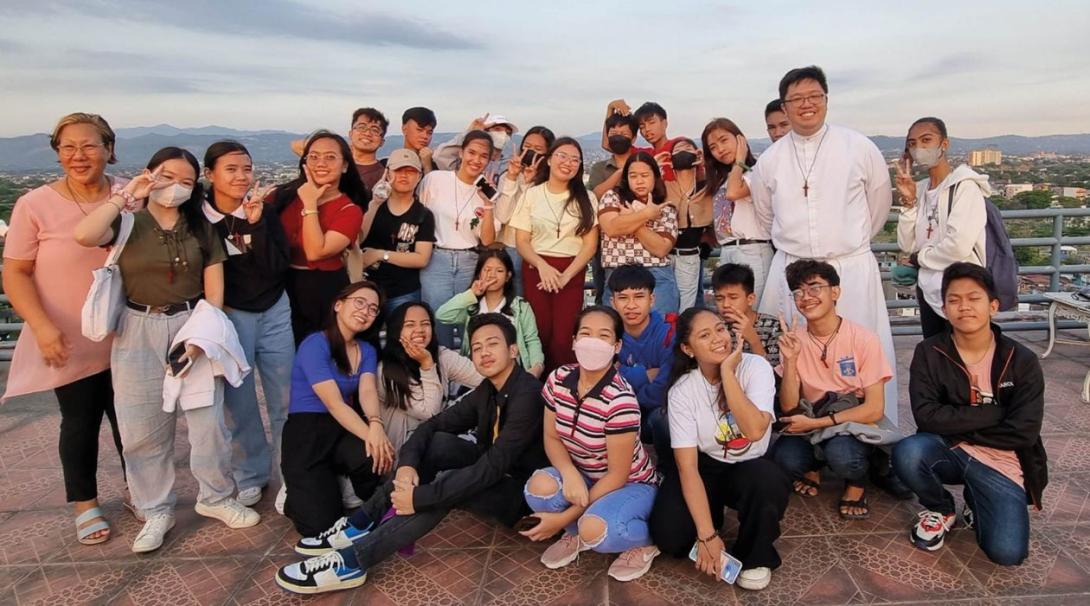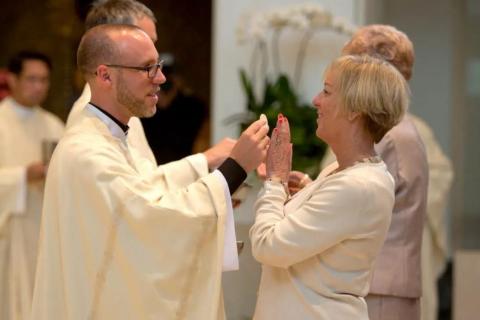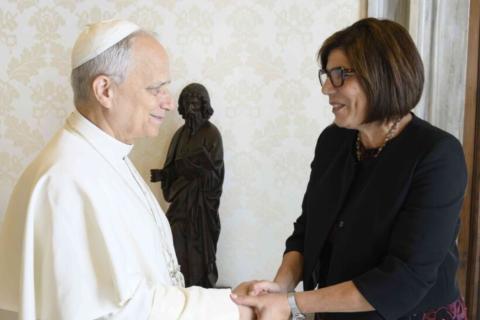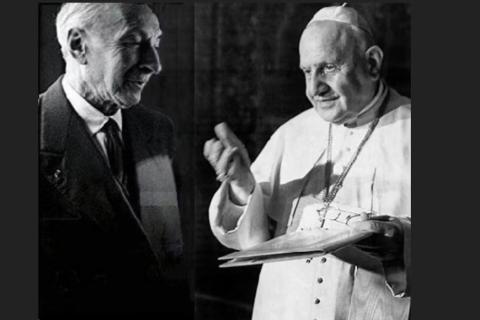
Photo by courtesy of Bien Emmanuel C. Cruz, SJ
The Catholic Church in the Philippines celebrated 500 years of Christianity in 2021, coinciding with Portuguese explorer Ferdinand Magellan’s voyage aimed at circumnavigating the globe. That voyage was the first time the Gospel was brought to the Philippines. This marked the beginning of over 300 years of Spanish colonial rule. The Catholic Bishops Conference of the Philippines and the national government led the celebrations. However, due to the COVID-19 pandemic, festivities were simplified.
Many Filipinos felt gratitude and pride, recognizing that for five centuries, they had accepted, cultivated, and transformed the faith. Some groups, however, criticized the celebrations as a glorification of colonialism, which they believe eroded indigenous Filipino faith and culture. Despite this, the celebrations demonstrated the enduring Christian faith and resilient hope of the Filipino people.
Reflecting on half a millennium is impressive and a testament to grace. Yet, viewing 1521-2021 merely as an “accomplishment” of steadfast faith or a “milestone” prompts important questions: Where should the next years, decades, and centuries lead us? Where is the Lord guiding us? To answer these questions, we must first examine the state of the Filipino Church today.
I will not present statistical data on the relevance of the Catholic Church in Filipino society. Instead, I will share observations and stories from my engagement in Church life in the Philippines. As a Jesuit seminarian in my ninth year of formation, I have been assigned various tasks and to different locations. I have spoken with diverse Catholics: some deeply devoted to piety, others immersed in academic theological pursuits, and still others dedicated to community-building and youth ministry. Despite these efforts, the Philippines remains one of the most corrupt countries, with increasing poverty and crime rates, human rights abuses, and crimes against innocence, making our Christian claim seem like an empty slogan rather than a transformative force.
Filipino Jesuit psychologist Fr. Jaime Bulatao, SJ, explains this phenomenon as “split-level Christianity.” This term describes individuals whose religious beliefs and practices do not fully integrate with their daily lives and behavior. They might participate in religious rituals and publicly display their faith, but fail to apply moral and ethical principles in their everyday actions. This split creates dissonance, where professed beliefs are not consistently reflected in actions and decisions outside religious contexts. This challenge highlights the need for a holistic and authentic Christian life, where faith is integrated into all aspects of existence.
Instead of despairing, Filipino Christians must see this as a cultivated field where the Lord can sow his seeds. Despite the darkness in our history and society, hope beckons us to let our Christian lives shine. The Philippine Church must rekindle its youthfulness, dynamism, and energy, engaging new questions with new ways of thinking while remaining faithful to the Gospel.
Youthfulness Means Hope
Pope Francis states in Christus Vivit, “The Church is young when she is herself, when she receives anew the strength born of God’s Word, the Eucharist, and the daily presence of Christ and the power of his Spirit in our lives.” The Philippine Church, despite its 500-year history, must discover its youth and vigor. Can the Filipino Church still learn to dance? Youthfulness is not an external characteristic we must aim for; it is at the core of our community. We must simply look at ourselves.
Historically, the Church in the Philippines is still young. Five hundred years is a small fraction of the Catholic Church’s entire history and even less compared to God’s self-revelation to humanity. Our history as a Filipino Church stands on the shoulders of great narratives of grace. This should fill us with hope and joyful expectation of the possibilities for our Church if we allow ourselves to be transformed and led by God’s Spirit.
More significant than our historical “youth” are the actual demographics of our communities. In Europe and many parts of the West, the Church is aging. But in the Philippines, many Church communities are sustained and led by the youth. The two canonized saints from the Philippine Church, Lorenzo Ruiz and Pedro Calungsod, are relatively young. Ruiz was forty-two, and Calungsod was seventeen. Both were devoted members of the laity.
Every Sunday, in our seminary, we are asked to go to Payatas, Quezon City. Payatas, once a dump site and relocation area for Manila’s poor, remains one of the most congested areas in the metropolis. Our assigned chapel is modest: four walls covered by a GI sheet, a concrete altar, and a few saint images. Every Sunday, children and youth aged twelve to twenty prepare the chapel for morning mass, setting up chairs, lights, and the sound system. Half the congregation every Sunday is from the youth ministry, serving as choir members, servers, and readers. After the Eucharist, they stay for two more hours to discuss the readings and strive to make the words of the gospel come alive in their lives. In this small, impoverished community, the youth group brings vigor and life to the Church.
As a Church, we must rekindle a youthful vision in our understanding and perspective. I have noticed two significant characteristics in Filipino youth groups: a deep sense of generosity and justice and an openness to inclusivity, mirroring the inclusivity found in the Gospels. When substantial financial donations come in, they set aside a significant amount to share with poorer community members through charitable activities and outreach programs. In many parishes across the country, the same generosity can be observed. In limited resource situations, the youth remind us to share our blessings
Can the Filipino Church still learn to dance? Youthfulness is not an external characteristic we must aim for; it is at the core of our community.
This generosity and sense of justice are essential for the renewal of the Philippine Church. The youth embody these values and demonstrate that living a Christian life means actively caring for others. Their inclusivity, reflecting Gospel values, invites everyone into the fold, breaking down barriers and fostering unity. By embracing these qualities, the Filipino Church can become a beacon of hope and transformation in a divided world.
Youthfulness means hope! Pope Francis in his message to young people on the fifth anniversary of Christus Vivit again reminds the young that their way forward and their reason to hope is Christ alone:
Christ is alive and he loves you with an infinite love. His love for you is unaffected by your failings or your mistakes. He gave his life for you, so in his love for you he does not wait for you to be perfect. Look at his arms outstretched on the cross, and ‘let yourself be saved over and over again’. Walk with him as with a friend, welcome him into your life and let him share all the joys and hopes, the problems and struggles of this time in your lives.
This must serve as a reminder not just for the youth, but for all: For Filipino bishops, parish priests, religious, and all members of the Church. Our source for renewal is the newness and the eternal spring that is Christ Jesus and his constant invitation to experience anew his love and his mercy.
The Challenge of Secularism
Many Filipinos doubt the relevance of the Catholic faith in our increasingly secular society. Yet, there remains a profound hunger for connection, love, and meaning—a need for something or someone to anchor them in a drastically changing and uncertain world.
While many have adopted new philosophies to address this need, some find solace and renewal in returning to the Church, particularly by joining youth groups that connect them to each other and ultimately to Christ—to constantly encounter him and be renewed by that Christic encounter.
For example, some people say that young people do not pray. I beg to differ. Many young and active Church members pray deeply but differently from older generations. This difference highlights the beauty of the youth’s faith; they are unafraid to let their hunger for Christ lead them to explore both new and traditional ways of being intimate with him.
If our society and Church can acknowledge the uncertainty of our times and the new questions that our old answers cannot satisfy, we can also seek Christ anew, rather than simply trusting in the usual things that we’ve been doing. In this we learn to trust that the Lord’s Spirit will guide us as we navigate a new world. For the Philippine Church to move forward in faith and hope, we must cling to Christ again and, like the first disciples, cry out, “Save us, Lord! For we are perishing!” We should not place our trust in the status quo simply because it “seems” to work.
Going Forward
As we stand at the threshold of the next 500 years, we must embrace the youthful energy, generosity, and inclusivity that our young faithful exemplify. This is not merely about celebrating a historical milestone but about renewing our commitment to live out the Gospel authentically in every aspect of our lives to ensure that this faith brings about a transformative force in society resulting in justice for all.
In Europe and many parts of the West, the Church is aging. But in the Philippines, many Church communities are sustained and led by the youth. The two canonized saints from the Philippine Church, Lorenzo Ruiz and Pedro Calungsod, are relatively young. Ruiz was forty-two, and Calungsod was seventeen. Both were devoted members of the laity.
In renewing to make Christ our sole anchor and guide, intimate to him in prayer, and faithful in his example, we as a Church can transform our communities and society, making our faith a vibrant and dynamic force for good.
Let’s move forward with unwavering hope and courageous hearts, trusting in the Holy Spirit to lead us. In doing so, we can ensure that our faith remains a living, transformative force, lighting the way for generations to come. Together, we can build a future where the love of Christ shines brightly in every corner of our nation, inspiring all to live with renewed purpose and boundless compassion.












